Last Updated: 4 weeks ago
If you are like most pet owners, you can’t stand it when your cat comes home a stinky mess after a bit of fun outside.
It drives me up the wall when I discover my kitty rolled in something vile like fish, skunk, or even worse, horse manure.
But why do cats roll in dirt? Read on for the top three reasons.
3 Reasons Why Cats Roll in Dirt
It might seem cute to see cats rolling in the dirt. It’s no fun, though, especially if they are inside pets.
There are three primary reasons cats exhibit such behavior, as below:
#1 Your Cat May Be in Heat
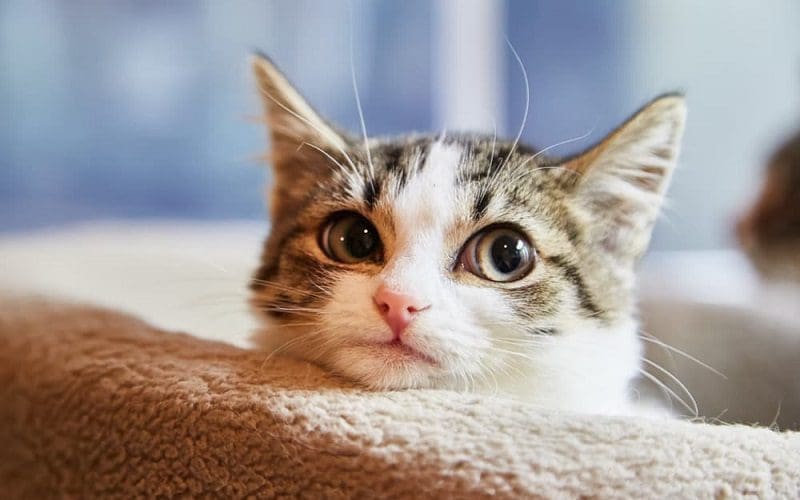
Why is my cat sniffing the floor and rolling around? If your cat is female, she may be rolling around outside to show submission to area male cats.
Veterinarians say rolling around on the ground may be a way of showing she is open to mating.
As part of the “affectionate behavior” and the apparent “sexual frustration” associated with the feline estrus condition, many cats in heat will roll around a lot.
Doctors continue by saying that cats in heat may make their condition known by rubbing their backs on the floor, carpet, or upon other horizontal surfaces (such as dirt).
When you find yourself asking why do cats roll on their back? Check to see if other signs indicate it is mating season.
#2 They Enjoy How it Feels
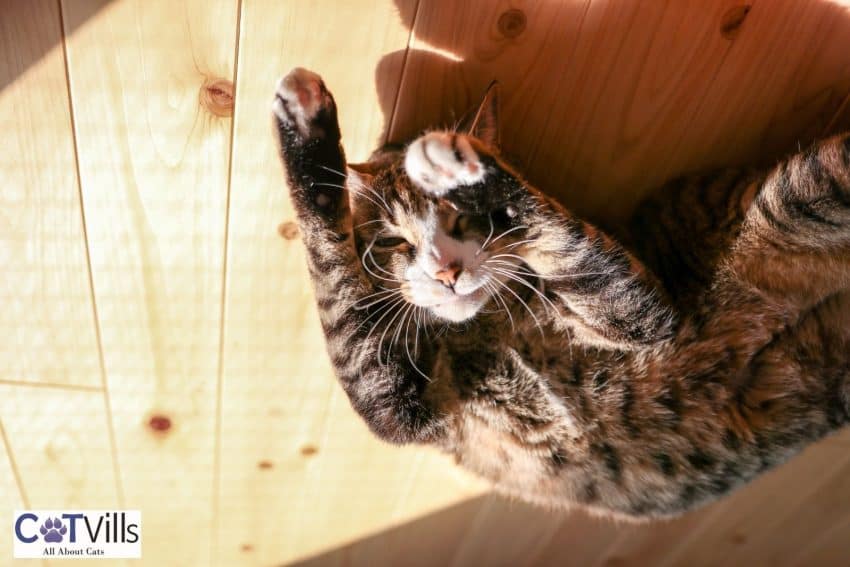
Why do cats roll around in the dirt? One reason might be because they enjoy how it feels.
If this is the case, getting your cats to stop may prove difficult. Everyone knows that cats do what they like to do.
While that is good news (at least it’s not a medical condition), breaking that lousy habit may require consistent reinforcement and time.
The amount of time will be different for each cat. Some cats pick up on what you want and quickly change their behaviors.
Others might let you think they are conforming. My sister’s cat will sleep on the couch at night and jump off when she hears the bedroom door open (he knows he isn’t allowed on the couch).
And some may not wish to change their dirt romping activities, and you’ll have to keep them inside the house or learn to live with it.
#3 Scent Transfer
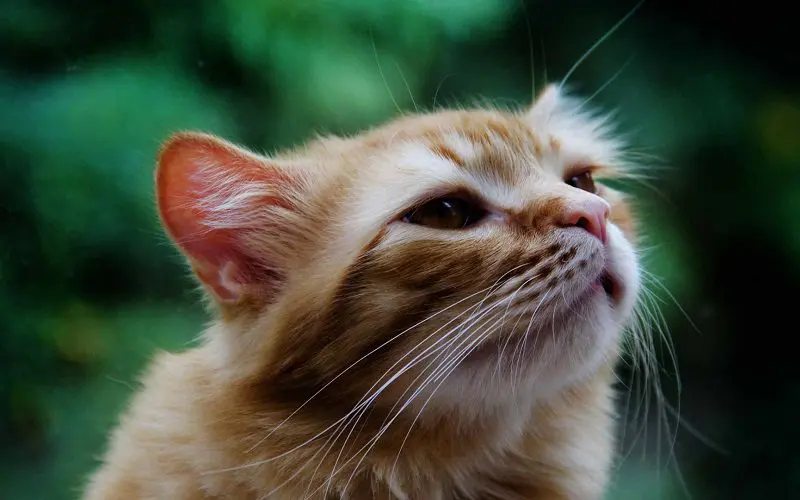
Cats are notorious for communicating by scent. One way they do that is to rub their heads or bodies on whatever is around them.
If it happens to be your yard, they are rolling around in. They could let all future feline visitors know that this area is already marked and taken.
They use their scent glands on their cheeks, paws, and flanks to leave a personal scent.
Is it safe For A Cat To Roll In The Dirt?
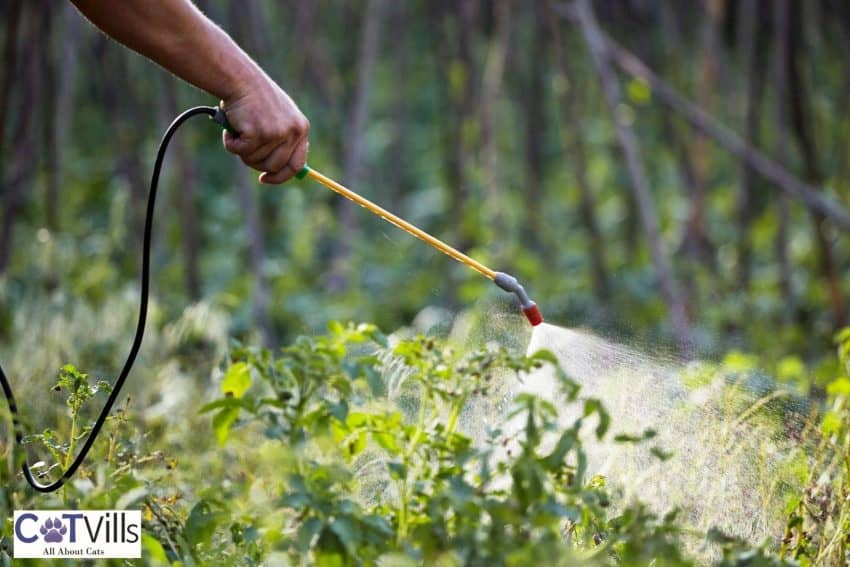
Now that you know the most common answer, why do cats roll around in the dirt? I can address whether or not it is safe for them to do so.
If the cat is eating the dust, that makes it potentially unsafe. So, what can you do?
First, you have to ask yourself, why is my cat eating dust? If it is a vitamin deficiency, you want to get your cat to a veterinarian to adjust their diet accordingly.
If your cat is perfectly healthy with a solid diet, eating dirt could still potentially lead to problems if they come into contact with pesticides.
Chemical weedkillers may seem okay until your cat becomes a dirt eater!
Your cat may have a mild case of pica, an eating disorder in cats where they lick or try to eat non-edible items. Confirm with an animal behaviorist or veterinarian before treating.
If your cat is rolling around in the dirt and not eating it, try to figure out why they are taking dirt romps in your yard and know that most of the reasons are safe.
Is my cat just expressing that he is happy? If so, you can tolerate the dirt his dust bath brings. Depending on your cat’s personality, you might consider it normal behavior rather than unusual.
If your cat has itchy skin and it isn’t a medical condition causing it, you can also feel safe about allowing it to back scratch in the dirt.
If your cat is marking his territory, it can also be assumed that rolling around in the dirt is a safe enough activity.
While it may be safe to roll around, for the most part, you want to be careful your cat doesn’t pick something up that you don’t want on him or in the house, such as a flea infestation.
How To Stop Cat From Rolling in Dirt?
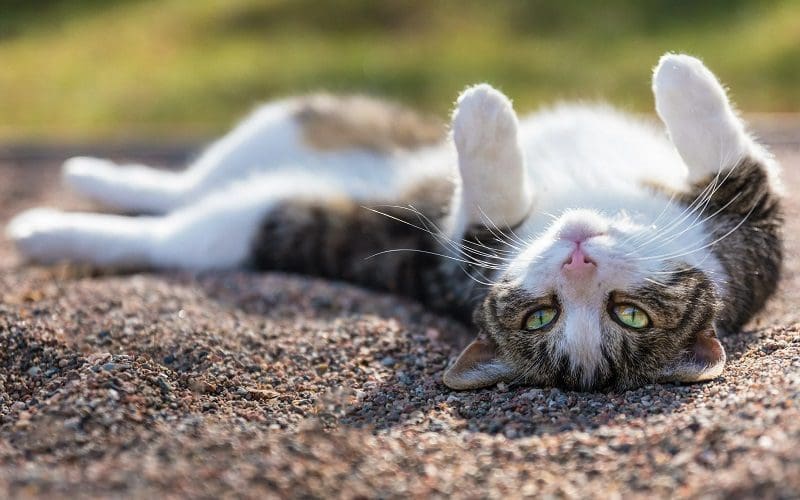
One thing I’ve been thinking is why on earth do cats, who are so meticulous about being clean, think it’s okay to roll around in the dirt? And how can I stop my cat from doing it?
The power of distraction can be powerful with cats. You can use a laser, a string/yarn, a toy, etc., to immediately distract your cat when he starts to roll.
You can keep your cat indoors. Screened rooms or window seats are a great way to get direct sunlight or fresh air.
Put physical barriers around the dirt to prevent the cat from dust bathing.
Conclusion
Why do cats roll in the dirt? Truthfully, the answer is as varied as the personality of your cat. Pay extra attention to make sure there are no changes that require professional care.
If you sense or see valid reasons/symptoms that suggest a dietary or medical condition (such as a skin condition), make an appointment with a pet care specialist.
Otherwise, the top three common reasons for rolling around in the dirt are: your cat may be in heat and letting others know it by their actions
Your cat might enjoy how it feels to roll around in the dirt; your cat may be trying to transfer their scent to mark their territory.
All of the above are common behavior and perfectly natural.
Have you noticed your cat roll their backs on dirt? Let us know how it went down in the comment section!
Resources:
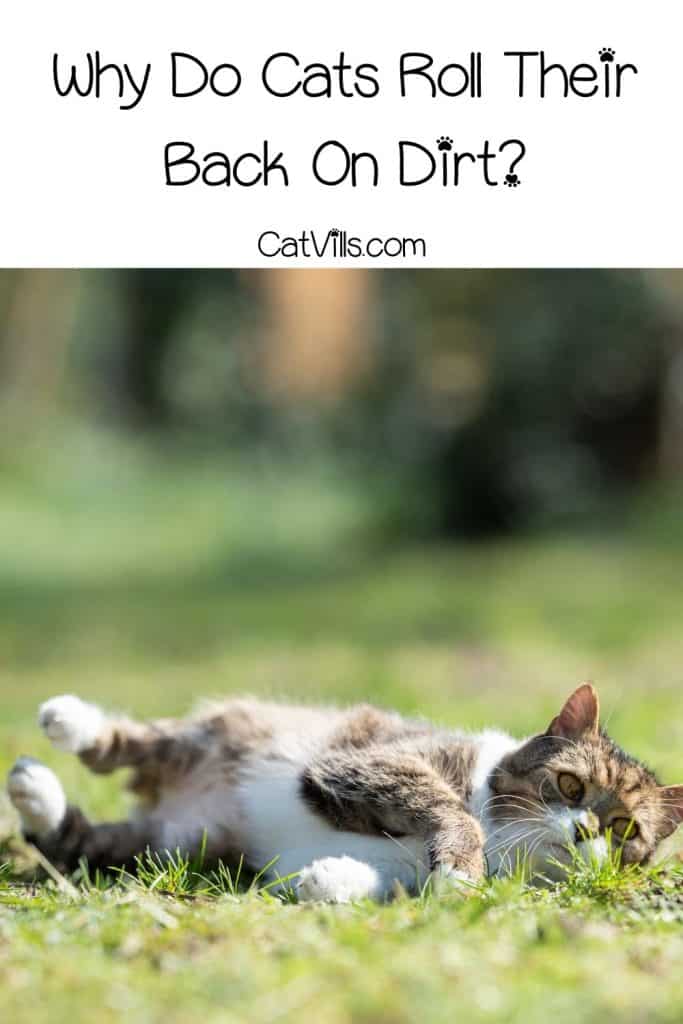

Dr. Linda Simon MVB MRCVS is a locum veterinary surgeon who has worked in London for the past 8 years. She graduated top of her class in small animal medicine from UCD, Dublin. She is currently a member of the Royal College of Veterinary Surgeons. Linda is the resident vet for Woman magazine and a frequent contributor to People’s Friend Magazine, the Dogzone website, Vet Help Direct and Wag! Linda also writes content for the CVS veterinary group, Vetwriter and a number of other establishments.
